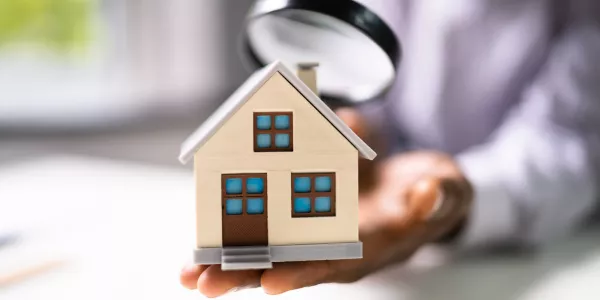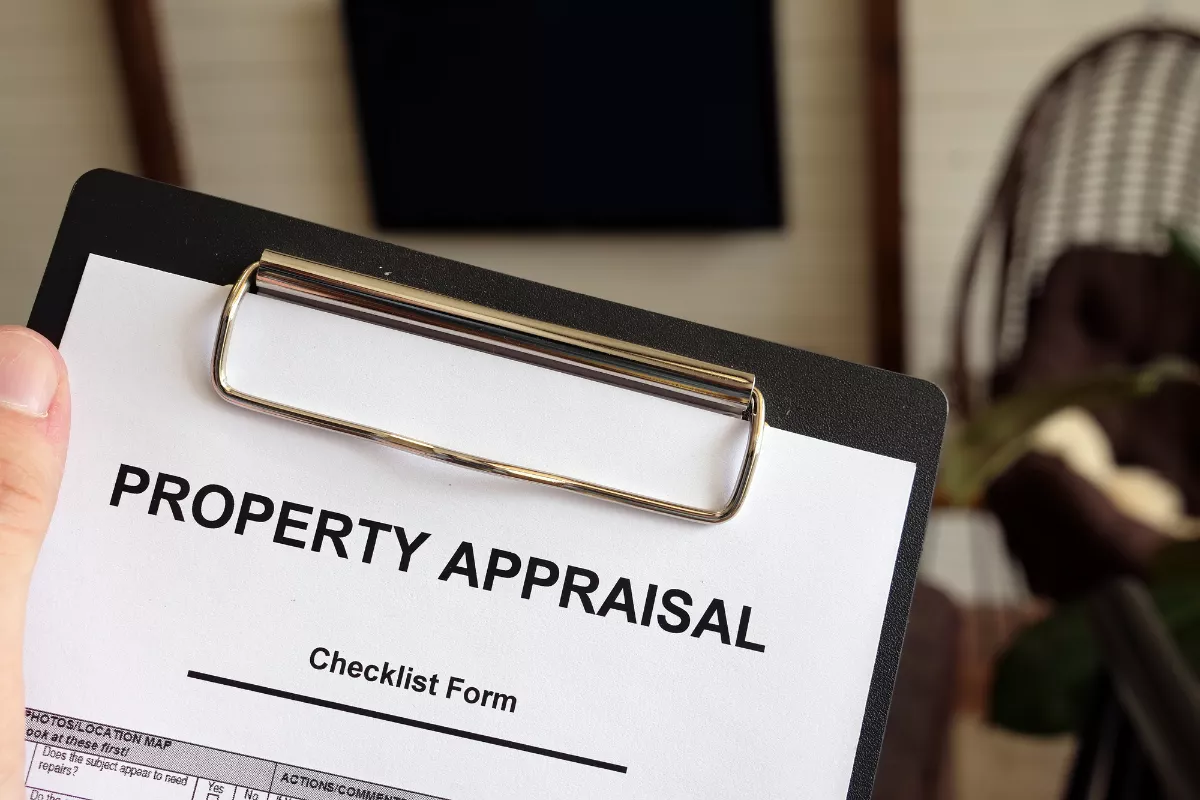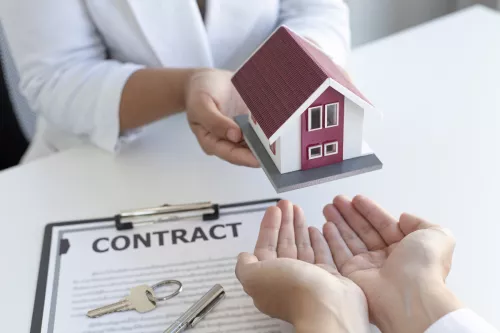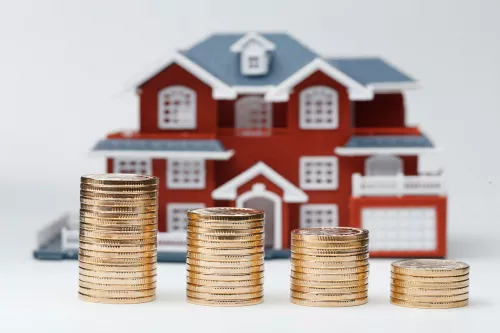The objective of an appraisal is to pinpoint a home's fair market value, a crucial step usually reserved for the latter stages of the home buying process, right after your offer is accepted by the seller and you begin your financial interactions with a lender.
In the realm of mortgage refinancing, this assessment is strategically placed between the loan processing and the final approval phases. For buyers and sellers alike, understanding the intricacies of home appraisals can be a complex task.
That’s why we gathered here crucial information to clarify this process, providing deep insights into the appraisers' imperative duty of impartiality as required by law, their significant role in ensuring lenders receive precise property valuations, and the essential strategies for preparation. Let’s get to it!!
Understanding the Appraiser's Role
Appraisers, who are licensed or certified professionals, play a pivotal role in real estate transactions by delivering an unbiased, objective assessment of a property's market value. Their evaluations are rooted in a thorough analysis of various factors, including the property's location, its physical condition, and the prices of comparable properties sold in the area.
This meticulous approach ensures that the determined price accurately mirrors the true value of the home. States require these skilled professionals to hold the necessary qualifications to perform appraisals for federally regulated lenders, guaranteeing their expertise and familiarity with the nuances of the local real estate market.
As neutral parties in the transaction, the work of appraisers instills confidence in mortgage lenders that the loan amount aligns with the home's real worth, while also assuring buyers or homeowners that they are receiving a fair and unbiased valuation of their property.
Key Factors Appraisers Evaluate

Appraisers consider numerous aspects of a property, including:
Location
The appraisal value hinges on your home's location, including the desirability of the neighborhood and the specific site of your property within it. Elements such as the area's safety, accessibility to schools and medical facilities, and nearby leisure amenities like parks and beaches can elevate your property's worth.
Structural Construction Materials and Updates
The materials used in your home's construction and any subsequent updates significantly impact its value. Modern materials and renovations, particularly those enhancing the home's safety and efficiency, are highly valued.
This includes updates to electrical systems, removal of hazardous materials, basement enhancements, and improvements to the roof, siding, and insulation.
Age of the Home
Both new and older homes have their unique appeal that can affect appraisal value. Newer homes are generally less risky and potentially higher in value due to fewer expected issues, whereas older homes, especially those well-maintained or in historic districts, can also command high appraisals.
Design Style of the Home
The home's design style is scrutinized, with certain timeless designs maintaining value better than those following fleeting trends. Homes with outdated decor may receive lower appraisals.
Curb Appeal
The external appearance and landscaping of your home influence its appraisal value. Well-designed and maintained exteriors and gardens enhance value, whereas neglected or overcomplicated landscapes may detract.
Number of Bedrooms
The more bedrooms your home has, the higher its potential appraisal value, as appraisers compare it with similar homes in the area.
Number of Bathrooms
Similarly, more bathrooms can lead to a higher appraisal value, with appraisers considering the total number of full and half baths in comparison to other local homes.
Square Footage
The total and usable square footage of your home affects its appraisal value, with appraisers paying attention to how space is utilized within the property.
Heat and Air
The type and condition of your home's heating and cooling systems can influence its appraisal value, with modern, efficient systems being preferred.
Storage Space
Ample and practical storage space throughout the home, including large closets and usable attic or basement areas, can increase appraisal value.
Garage Space
The size of the garage or the presence of a garage can also impact the home's appraisal value, with larger garages typically adding more value.
Recent Home Renovations
Updates to the home, especially in key areas like kitchens and bathrooms, can significantly raise the property's appraisal value.
The Current Real Estate Market
Market conditions at the time of appraisal affect the home's value, with homes generally appraising higher in seller's markets.
Nearby Features
Local amenities and features, such as access to water bodies, parks, and recreational facilities, can enhance a home's value, whereas proximity to less desirable facilities might decrease it.
Comps
Comparable recently sold homes in the area are a critical reference for appraisers, providing a benchmark for your home's potential value based on similar properties.
Potential Negative Influences
Certain factors can lead to a lower-than-expected home appraisal, with some elements, like nearby comparable sales prices, being beyond your control. Being aware of the local market trends and potential issues with your property can help brace you for the appraisal results.
Unique or rural homes present a particular challenge due to the difficulty in finding comparable properties, which can lead to less precise valuations and potentially undervalue the home.
Outdated appliances, systems (such as plumbing, electrical, or HVAC), and interior designs can negatively affect a home's value, possibly indicating neglect and hidden problems. Moreover, construction materials and methods have evolved, with newer technologies enhancing a home's strength, efficiency, and safety.
Homes built with now-obsolete materials or lacking modern updates, especially in terms of energy efficiency, windows, and doors, may see a reduction in value. Additionally, the cost of repairing or replacing old or damaged roof tiles and siding can further decrease a property's appraisal value.
Communication with Appraisers: Dos and Don'ts
Effective communication with appraisers is crucial to ensure a smooth appraisal process, but it's important to know what is appropriate and what isn't. Here are some expanded dos and don'ts, along with further insights into prioritizing factors during an appraisal.
Communication with Appraisers: Dos
Do Provide Detailed Documentation
Besides listing recent improvements, include any official documentation that supports these updates. This might consist of receipts, permits, and before-and-after photos to provide clear evidence of the enhancements made.
Do Be Available for Questions
Make yourself available to answer any questions the appraiser might have. Your responsiveness can help clarify any uncertainties and ensure the appraisal reflects the true value of your home.
Do Highlight Unique Features
While staying objective, point out any unique or high-value features of your home that might not be immediately apparent, such as high-end appliances, custom features, or energy-efficient systems.
Communication with Appraisers: Don'ts
Don't Oversell Your Home
While it's tempting to highlight every positive aspect of your home, avoid overselling or embellishing the truth. Appraisers are trained to assess homes objectively, and any discrepancies between your portrayal and the reality can negatively impact the process.
Don't Follow the Appraiser Around
Give the appraiser space to do their job. Following them closely or hovering can be perceived as pressure or an attempt to influence their assessment, which could put them on guard.
Don't Ignore Deficiencies
If there are known issues with your property, don't try to hide them. Appraisers will likely discover them anyway, and honesty can build trust.
Pre-Appraisal Preparation
Enhance the value of your home in advance to achieve the highest possible appraisal. This could involve extensive renovations or simple improvements as outlined in the following checklists:
For Homebuyers
- Research the value of homes and recent transactions in the neighborhood.
- Evaluate the condition of the home you're interested in to identify any necessary fixes.
- Include a clause in your offer that allows you to back out if the appraisal falls short.
For Sellers or Refinancing
- Maintain your yard and exterior to boost "curb appeal," a key factor in appraisals.
- Small fixes, such as mending damaged walls or a fresh coat of paint, can impact the home's value.
- Ensure all electrical fixtures and ventilation systems are in working order.
- Keep records of any upgrades or renovations, noting their cost and completion date.
- Present any previous appraisal reports.
- Guarantee accessibility to all areas of the home.
- Schedule the appraisal at a convenient time for the appraiser and avoid interruptions during their visit.
Timing Matters
For those purchasing a home or considering refinancing, anticipate the appraiser's visit to last anywhere from 30 minutes to a couple of hours, contingent on your property's dimensions. During this visit, they'll photograph all habitable spaces to record the home's current state.
After the on-site evaluation, the appraiser will compile a detailed report of their observations for the lending institution. This step usually spans three to five days, as the appraiser needs to verify all the collected information, which can be time-consuming.
Understanding Appraisal Costs
Generally, the appraisal fee is covered by the home buyer, or by the homeowner if it's for refinancing a mortgage. The cost of an appraisal can fluctuate based on the property's location and nature, with typical charges falling between $400 and $1,000.
The costs for appraisals can be broken down by loan type as follows:
- For conventional loans, appraisal fees usually range from $500 to $650.
- Appraisals for FHA loans tend to be at the upper end of this range, around $650.
- VA loan appraisals typically cost about $750, though this can vary depending on the type of property and the state.
People also ask
Can I contest an appraisal I believe is inaccurate?
If you find yourself disagreeing with an appraisal, it's advisable to reach out to your lender to express your concerns. You have the choice to lodge a complaint about the appraisal or evaluation either directly with your lender or via the lender's federal regulatory body. If you believe the appraisal is flawed, you can request a review or a second appraisal.
How long does an appraisal take?
The process can take a few days to a week, depending on the appraiser's schedule and the property's complexity.
Does a high appraisal guarantee a higher selling price?
Not necessarily. While a high appraisal can support a higher asking price, market conditions and buyer willingness ultimately determine the sale price.

 Marcio Vasconcelos
Marcio Vasconcelos





